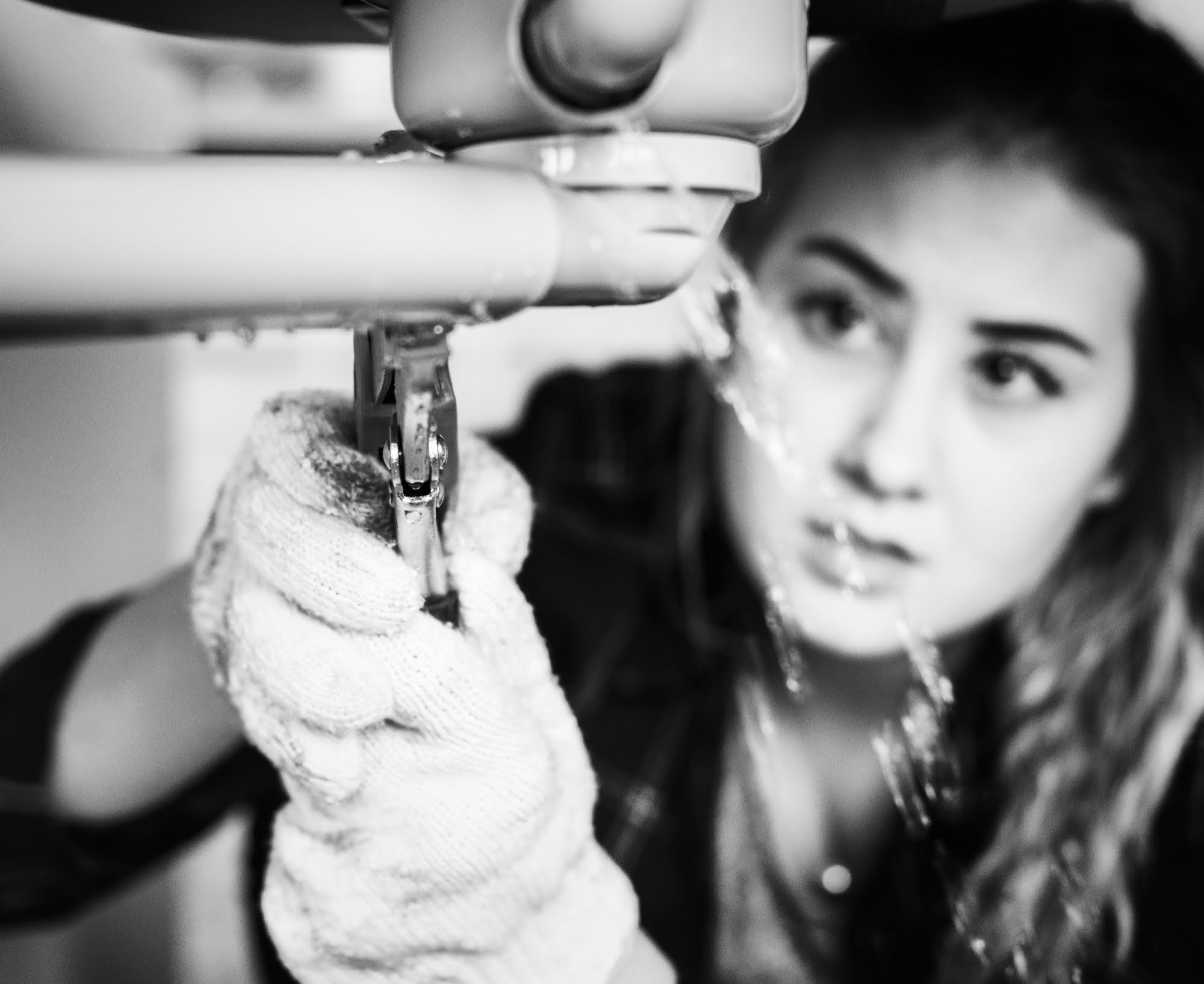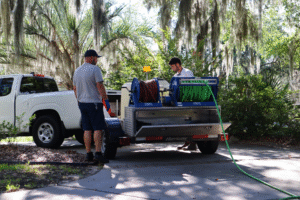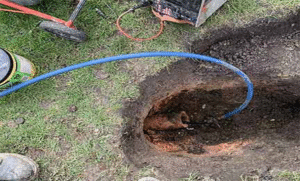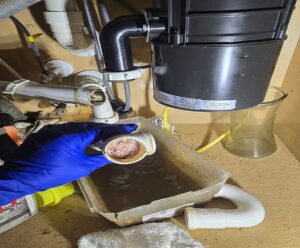As in any industry, there are always new types of research, testing, inventing, experimenting, and other activities going on in the field of plumbing. As a new plastic or metal alloy is introduced to the market, plumbing technicians begin trying it out to test its quality. If it’s an improvement over current materials, they may make it their first choice in new installs.
A new garbage disposal technology may make a certain brand the go-to for plumbers, or a new water-efficient toilet model. The outcome of these ongoing developments, of course, is that when plumbers go into the field to respond to service calls, they know that they could find anything at the customer’s home or business!
Across our service area here in the Lowcountry we see all sorts of fixtures and pipes, from the newest materials to fixtures that have been long forgotten by most people, yet have miraculously survived for decades due to good maintenance…and a healthy dose of luck.
Here is a brief and partial overview of the different types of materials and fixtures we see in customers’ homes and how things have changed over the past years. How does your home compare–old-fashioned and in need of replacements, or state-of-the-art and water and energy efficient?
Fixtures
Garbage Disposals
Ever since its introduction, the garbage disposal has, quite simply, revolutionized the way kitchens across the world work. Food preparation is more sanitary, more compact, and easier than it was before, thanks to the ability to simply flip a switch and safely rinse food scraps down the sink.
The major developments in garbage disposal technology in the past few decades involve motor strength. A secondary interesting improvement, however, is the creation of low-volume disposals for people who don’t want the sudden roar of their disposal disturbing the household.
Homeowners purchasing new disposals can also consider a “batch feed” disposal, which fills up a chamber with waste, then requires a manual action to move the waste into the grinding mechanism. This makes it easier to avoid dropping forks, knives, and non-organic waste into the disposal blades.
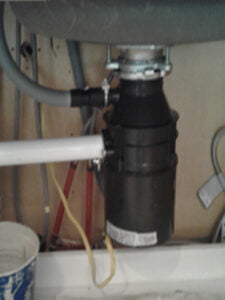
Sinks/Tubs
While replacing a bathroom sink or bathtub used to be a matter of rebuilding the entire bathroom, today there are some very convenient and simple options that accomplish much the same end goal. A bathtub liner system allows for a new bathtub/shower combo without even removing the existing one.
Replacing a sink and its faucets is a very quick job for a professional plumber, and there are any number of creative options available! Consulting with a plumber is a great way to find out what designs are out there and which one might fit your needs best while making a style statement at the same time.
Toilets
The biggest and most important upgrade in toilet technology is in water efficiency. Most modern toilets use much less water than their predecessors did, saving the homeowner money with every flush. Replacing old toilets with modern ones is an important step to take in an older home, not only to save water but to avoid the danger of an aging toilet failing and causing a plumbing disaster.
You may have even seen toilets that offer two different flush options for liquid and solid waste. This is an additional way that home and business owners can conserve water, helping out the planet while saving on monthly utility bills at the same time.
Plumbing Pipes
People are often surprised to discover the variety of materials that are used in creating a plumbing system. Carrying water to and from a house is complicated business! Hot and cold water are best carried using different pipe materials, and pipes designed to carry waste water don’t have the same requirements as those that carry clean water suitable for drinking and cooking.
Finally, in the second half of the 20th century there was a major shift from metal to plastic pipes. Much of the reason for this shift was economical, but the newly developed PVC pipes have also proven to be very flexible and reliable, quickly taking over as the plumbing material of choice in most situations.
Environmental Considerations
When installing new pipe today, plumbers carefully consider the environment immediately surrounding the pipe. If the pipe is buried or inside the walls of a home, PVC or CPVC (a specially treated version of PVC that can safely carry hot water at high pressure) are the most likely options. If the pipe is exposed to view, however, the plumber may consult with the homeowner about using a chromed metal pipe that is more aesthetically pleasing.
Iron, the metal most commonly used for plumbing in the past, has largely been abandoned for new installations due to the fact that it does not do well in the long term. Rust and corrosion are frequently responsible for service calls to homes with older pipe systems that have sprung a leak.
Specialized Materials
Copper pipe is another common component of older plumbing systems. While copper is comparable to PVC in its longevity and ability to safely carry both cold and hot water, its main drawback is cost. Copper pipe is generally triple the cost of PVC pipe, making it unpopular except in specific circumstances.
PEX pipe is easy to identify–it’s a very flexible plastic pipe colored red, blue, or white. With durability matching that of PVC, similarly low cost, and an even higher degree of versatility, this newer material is quickly becoming a favorite among plumbing professionals for new installations.
Faucets, Seals, and Valves
Often it’s not a pipe or fixture that fails, but rather the small parts that join them together. Rubber seals and gaskets are inexpensive and quite effective in keeping water where it belongs–inside the pipes–but they do inevitably wear out over time. Different factors can accelerate this deterioration, such as long periods of time in which rubber components are unused and dry out.
Having a professional plumber inspect the rubber seals and gaskets on your toilets and sinks can help you avoid a potential disaster, and can also save money in the event that the seal is allowing water to leak on a constant basis.
Faucet Variety
Many homeowners don’t even consider the possibility of changing the faucets in their kitchen or bathroom. When moving into a new home, however, it is certainly worth considering whether a modern, creative variation on the faucet could make life more enjoyable. The average kitchen sink faucet gets used many times every single day, and an ergonomically designed, smoother moving, or more water efficient faucet can be a very meaningful upgrade.
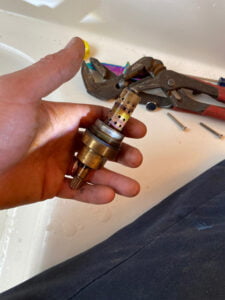
Should I Repair or Replace?
When a plumbing fixture needs attention, the question often comes up–is it worth repairing, or would it be better to replace it with a brand new model? Your plumber is the perfect partner to explain the pros and cons, provide a quote for both a repair and a new installation, and answer any questions you have about the process. The annual water savings associated with replacing a decades-old toilet or shower fixture may make the decision a no-brainer!
Pipes can be either easier or harder to decide about, depending on the situation. A burst pipe usually necessitates a replacement using modern materials. If an inspection has simply revealed that your pipes are suffering from minor tree root intrusion, age, or corrosion, you may ask your plumber to explain the risks and benefits of repairing the pipe versus replacing it with new pipes that will last many additional years.
Get the Information
If you had to take a pop quiz regarding the plumbing on your property, would you be able to identify what materials your pipes are made of, how old your garbage disposal is, or where the main water shutoff valve is to your home? These are good pieces of information to have, and in the event of an unexpected plumbing issue, they could allow you to greatly mitigate damage until a professional plumber arrives on the scene.
Fortunately, gaining this information is very simple! With a call to Rooter-Man of South Carolina, you can arrange a visit to your home with an experienced, highly skilled plumber who can inspect your systems thoroughly and let you know about any potential problems. Your plumber can also give you a quick education on what to do when a toilet backs up, you suspect a leak underneath your lawn, or your kitchen sink starts spraying water everywhere!
Rooter-Man of South Carolina
As your full service plumber in Charleston, SC, Rooter-Man of South Carolina is available for all your plumbing needs. Whether you’re simply considering making water-efficient upgrades or you are facing a catastrophic plumbing failure and frantically searching for a “plumbing company near me,” we hope you will make us your first call.
With many stellar customer reviews and decades of high quality service here in the Lowcountry, you know you can trust our plumbers with your home or business. We look forward to hearing from you soon!



